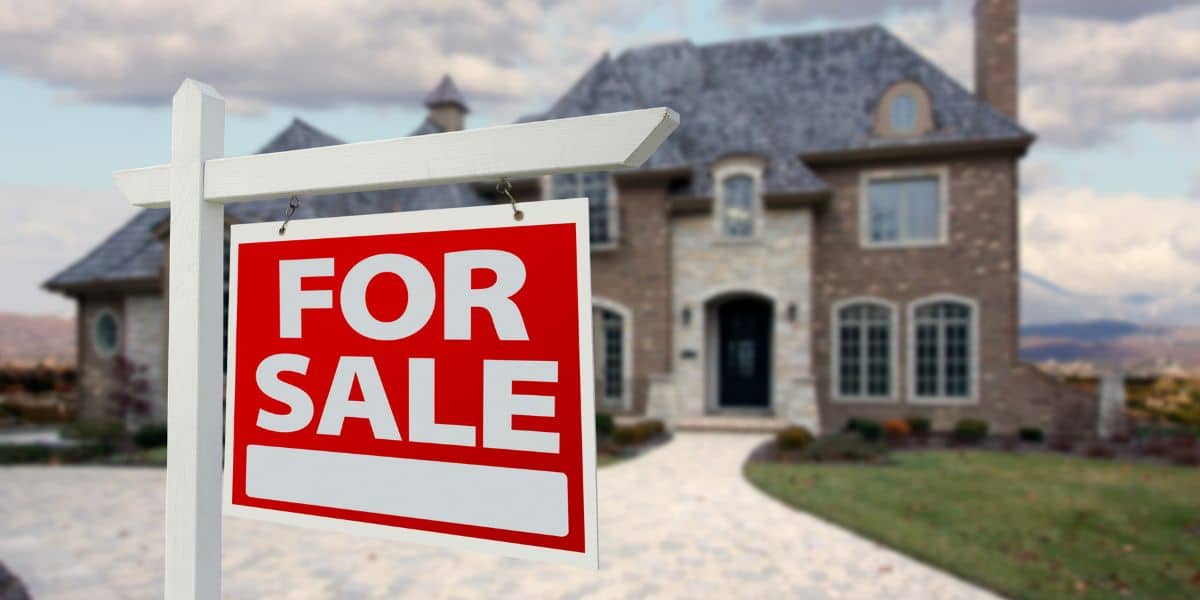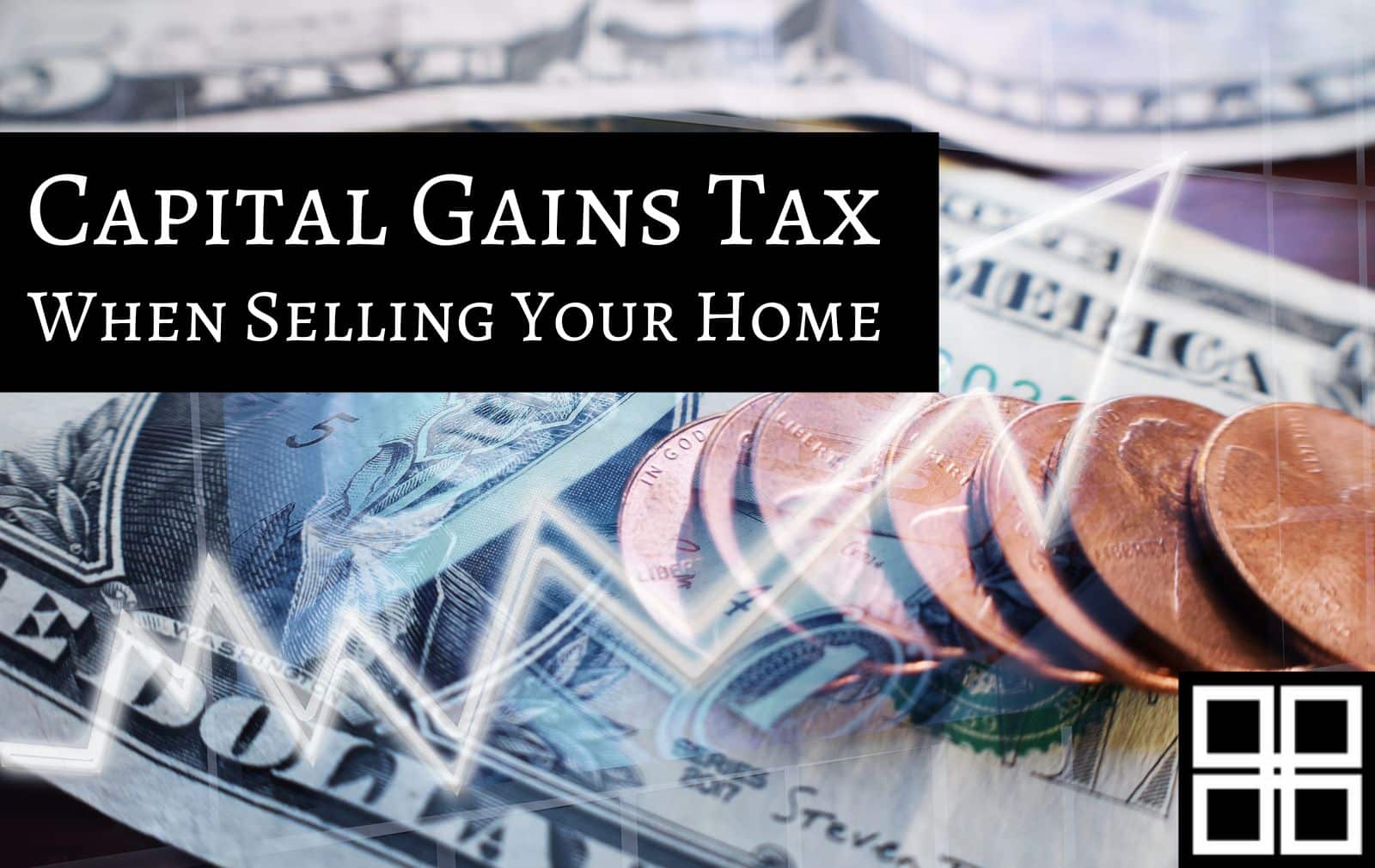Capital Gains Tax When Selling Your Home
You want to sell your house for a profit. Beware of a tax that will eat into your income when tax time comes around: capital gains tax. You could be charged a significant amount of income tax if the value of your home has increased significantly.
There are several ways to reduce or avoid capital gains tax when selling your house and keep as much money in your pocket. This is everything you need.
What is capital gains tax?
Capital gains tax is the tax you owe on your profit (also known as the capital gain), when you sell an asset or investment. The tax basis is calculated by subtracting from the sale price the original purchase price or cost of the asset (the “tax base”).
Long-term capital gains are taxed at special rates if the asset has been owned for more than a year. Long-term tax rates vary depending on income. They are 15%, 20% and 28% (for special asset types like small business stock collectors).
Real estate, including residential real estate, counts as a taxable asset. Any gains on a home sale are required to be reported to the IRS. You will calculate any due money and pay it when you file your tax return.
The capital gains tax is usually lower than the income tax rate, but it can still be a significant amount, especially for large-ticket items such as a house, which is the biggest asset most people will own. Capital gains tax is directly tied to the value of your property, and any increase in value. You could be liable for a large tax gain if your home appreciated substantially after you purchased it and you realized the appreciation at sale.
What is the capital gains tax rate on a primary home?
Capital gains tax on real estate can be complicated to calculate. Tax rates are dependent on a number of factors.
- What is your income tax bracket?
- What is your marital status?
- How long have you owned your house?
- Was the house used as your main residence or a second residence?
Remember: Tax is only charged on profit. If you bought a house for $250k five years ago and sold it for $500k today, your profit is $250,000. You can reduce your net gain by taking certain deductions. You’d need to report your home sale, and possibly pay capital gains tax of up to $250,000 on the profit.
You are not liable for capital gains tax if you have a taxable income of $44,625 ($89,250 when married and filing jointly) or less. If your taxable income is between $44,626 – $492,300 for a single taxpayer, or $89,251 – $553,850 for married couples filing jointly, then you will pay 15 percent of the $250,000 gain. Capital gains rates are 20 percent above these amounts.
The IRS offers home sellers several ways to reduce or avoid capital gains tax, primarily if the property is their primary residence. If you meet certain requirements, you can be exempt from taxation a certain portion of your profit. This amount is up to $500,000 or $250,000 depending on the filing status.
Before you begin the process of selling your house, you should familiarize yourself with capital gains tax exemption rules and seek the advice of a tax adviser. A poorly timed sale can result in a large tax bill, which could have been avoided. For example, if the property has been your primary residence for less than 24 months, you might decide to wait to sell your home until you reach that threshold, so you can avoid capital gains tax.
What is the capital gains tax rate on a rental home?
Rental properties do not have the same capital gains tax exclusions that a primary home does. Depreciation recapture taxes of 25 percent are due on any profit derived from depreciation previously claimed. Long-term capital gains tax amounts to 0, 15, or 20 percent, depending on your income.
Imagine that the property, which you purchased for $250,000 and then sold for $500,000. was a rental. The IRS will impose a depreciation tax of 25 percent on your profit if you have claimed depreciation as a business cost. Your remaining profit would be taxed based on whether you earn more or less.
If you intend to sell a rental property that you have owned for less than one year, you should try to extend ownership to at least twelve months. Otherwise, your profit may be taxed under ordinary income. You could be charged up to 37 percent in tax by the IRS for short-term gains.

How to avoid paying capital gains tax when selling a house
Capital gains taxes have a significant impact on your bottom line. There are several ways to avoid or reduce capital gains tax on the sale of a house. The type of property and your filing status will determine the answer. The IRS provides a few scenarios for avoiding capital gains tax when you sell your home.
How to avoid capital gains tax when selling your primary residence
If you are single and file your taxes jointly, the exemption is up to $500,000. If married and filing separately, it’s up to $250,000. This exemption can only be claimed once every two-years. It can effectively make the capital gains taxes moot.
Imagine a single filer who bought a house for $250,000. He lived there for three years and sold it for $400,000. The profit for the single filer is $150,000. The gain is below the threshold of $250,000 for capital gains and therefore exempt from tax.
There are certain conditions. To buy the house and live in it for twelve months. Then, you could rent it out for several years, then move back in for another year to establish primary residence. You can get a capital gains exemption if you live in the house as your primary residence 24 months out of the 5 years prior to the sale. If you are married and filing jointly with your spouse, only one spouse must meet this requirement.
How to avoid capital gains tax on a rental or an additional property
You will need to make a plan to reduce your tax liability if you have an additional property you intend to sell. Capital gains taxes can be mitigated in several ways:
Make the rental your primary residence
It is possible that the value of an investment property, which you plan to rent out but then sell, has increased. It may be wise to move into the rental property for at least 2 years in order to convert it to a primary residence. This will help you avoid capital gains. You will not be able to exclude the depreciation you incurred while renting the home. The primary residence status for your main house will also be lost, but it can be gained later by moving in again after the sale. You can establish primary residence and get the capital gains exemption if you do not plan to sell your main home within the next two years.
1031 Exchange
A 1031 exchange is another option. It is also known as a 1031 exchange. This only works when you sell your investment property and then use the proceeds to purchase another property of the same type. You can defer capital gains tax forever if you continue to invest the proceeds of the sale in another investment property.
Opportunity zones
The 2017 Tax Cuts and Jobs Act established Opportunity Zones – areas identified around the country as economically depressed. After five years, if you decide to invest in an area designated as low-income, your tax basis will be increased. Gains after 10 years are tax-free.
Deduct expenses
Focus on reducing the taxable gain or profit if you still have any capital gains even after using exemptions and exclusions. You can claim the following deductions:
- Repairs to a house or investment property can be expensive.
- Upgrades made to the home, such as adding an extra bedroom or renovating the kitchen
- Rent arrears can cause a loss in rental income on investment properties
- Legal, professional, and advertising costs to evict or replace a tenant
- Close-out costs on the sale of a property
Keep organized documents and records, such as receipts, bills and invoices, and credit card statements to support your expenses claims, in the event you are audited.










